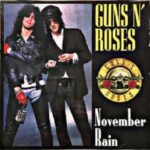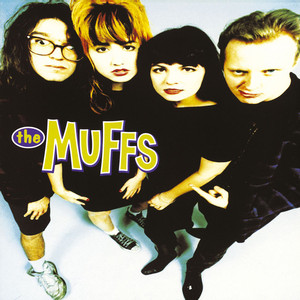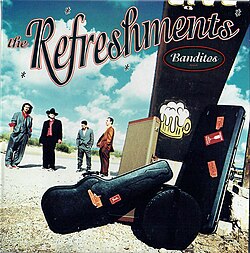 Guns N’ Roses’ “November Rain” isn’t just a song—it’s a full-fledged epic. Released in 1991 on Use Your Illusion I, it marked a dramatic departure from the band’s raw, punk-infused beginnings, revealing their ambitions to blend hard rock with sweeping orchestration, cinematic arrangements, and emotional storytelling. Clocking in at nearly nine minutes, “November Rain” has become one of the most iconic rock ballads of all time, a song that continues to captivate listeners decades after its release. Its scale, ambition, and sheer emotional weight make it one of the defining tracks of both Guns N’ Roses’ career and the era of early ’90s rock.
Guns N’ Roses’ “November Rain” isn’t just a song—it’s a full-fledged epic. Released in 1991 on Use Your Illusion I, it marked a dramatic departure from the band’s raw, punk-infused beginnings, revealing their ambitions to blend hard rock with sweeping orchestration, cinematic arrangements, and emotional storytelling. Clocking in at nearly nine minutes, “November Rain” has become one of the most iconic rock ballads of all time, a song that continues to captivate listeners decades after its release. Its scale, ambition, and sheer emotional weight make it one of the defining tracks of both Guns N’ Roses’ career and the era of early ’90s rock.
A Rock Ballad With Cinematic Ambitions
From the first delicate piano notes, “November Rain” establishes itself as more than a standard rock track. It immediately sets a reflective and melancholic mood, one that carries the listener through a landscape of love, loss, and longing. The arrangement is lush, combining piano, strings, electric guitars, and Axl Rose’s emotive vocals. Unlike the hard-hitting, riff-driven tracks that defined earlier Guns N’ Roses work, this song revels in space and dynamics, allowing each instrument and vocal line to breathe and resonate.
The orchestral elements are particularly notable. They aren’t simply decorative; they give the song a grandeur that makes it feel cinematic. Strings swell at just the right moments, creating tension and release, while the guitar solos soar above the arrangement like dramatic exclamation points. It’s as though the song itself is performing a slow-motion narrative, unfolding with meticulous pacing over nearly nine minutes.
Axl Rose’s Vocals: Vulnerability Meets Drama
One of the most striking aspects of “November Rain” is Axl Rose’s vocal performance. Known for his piercing high notes and aggressive delivery on earlier tracks, Rose adopts a more vulnerable, introspective tone here. His voice carries a sense of melancholy and yearning, perfectly suited to the song’s reflective lyrics and sweeping instrumentation.
Throughout the track, Rose navigates a wide emotional range. From hushed, intimate moments during the piano sections to impassioned cries during the climactic guitar solos, his delivery mirrors the ebb and flow of the music. This dynamic vocal performance transforms “November Rain” from a ballad into a storytelling experience, one that immerses the listener in a vivid emotional arc.
Slash’s Guitar: Emotion in Motion
If Axl Rose provides the voice, Slash gives the heart of the song its emotional punch. His solos on “November Rain” are legendary, not because of technical flash but because of their expressiveness. Each bend, sustain, and melodic phrase feels deliberate, carefully crafted to match the song’s shifting moods.
The first major solo comes after a series of reflective verses and provides a release of tension. It’s fiery but measured, conveying longing and frustration without overshadowing the vocals or orchestration. The final solo, however, is the song’s emotional apex. Here, Slash’s guitar screams with an almost cinematic desperation, perfectly complementing the song’s theme of love, loss, and acceptance. His playing doesn’t just support the song; it elevates it, turning an already epic ballad into something mythic.
The Arrangement: Rock Meets Orchestral Drama
“November Rain” is notable for its ambitious arrangement, which demonstrates Guns N’ Roses’ willingness to experiment beyond the boundaries of hard rock. The song seamlessly blends rock instrumentation with orchestral textures, creating a dynamic and layered soundscape. Strings add lushness without feeling overbearing, while piano passages provide emotional grounding and contrast to the soaring guitar sections.
The song also uses dynamics masterfully. Soft, introspective verses give way to grand, cinematic choruses and powerful instrumental climaxes. This tension and release keep the listener engaged across the song’s extended runtime, which is a testament to both the band’s songwriting skills and their understanding of narrative pacing in music.
The rhythm section deserves special mention as well. Duff McKagan’s bass and Matt Sorum’s drumming provide a steady foundation, ensuring the song’s sweeping orchestration never loses its sense of drive. The drums punctuate key moments, building suspense and emphasizing the climactic sections without ever overwhelming the arrangement.
Themes and Emotional Resonance
At its heart, “November Rain” is a song about love, impermanence, and the passage of time. It’s a meditation on relationships—the joys, heartbreaks, and inevitable changes that come with deep emotional connection. Unlike the brash, hedonistic themes of earlier Guns N’ Roses work, this song is reflective, introspective, and profoundly human.
There’s a bittersweet quality to the song that resonates with listeners. The melancholy of the piano, the emotional urgency of Rose’s vocals, and the soaring guitar solos all convey a sense of longing and nostalgia. It’s a song that acknowledges love’s complexity, recognizing both its beauty and its fragility.
This emotional depth is part of what has allowed “November Rain” to endure. Listeners across generations can relate to the themes of loss, hope, and resilience, and the song’s extended runtime gives them space to fully immerse themselves in the emotional journey.
The Iconic Music Video
The music video for “November Rain” is an extension of the song’s cinematic ambition. Featuring sweeping visuals, dramatic storytelling, and symbolic imagery, it elevated the track to a new level of cultural significance. From Axl Rose’s iconic wedding scenes to the funeral sequences and stormy landscapes, the video mirrors the song’s themes of love, mortality, and heartbreak.
The video also played a crucial role in cementing “November Rain” as a cultural touchstone. In an era when MTV had the power to define music careers, the lavish production and cinematic quality of the video set it apart. It became one of the most memorable and frequently played videos of the early 1990s, helping the song reach audiences far beyond traditional rock fans.
Legacy and Influence
“November Rain” represents a turning point in both Guns N’ Roses’ career and the rock genre more broadly. It demonstrated that hard rock bands could successfully explore epic, orchestral ballads without losing their core identity. It paved the way for other bands in the ’90s and beyond to experiment with grandiose arrangements and emotional storytelling in rock music.
The song has also become a standard for live performances. Guns N’ Roses’ concerts often feature extended versions, giving fans a chance to experience the song’s emotional highs and lows in real time. These live renditions underscore the song’s enduring appeal and the band’s ability to translate studio magic into a compelling stage experience.
Why “November Rain” Endures
Several factors contribute to the enduring appeal of “November Rain.” First, its ambitious structure allows for a rich, cinematic experience. The song’s extended runtime, orchestral elements, and dynamic contrasts create a sense of drama and scale rarely seen in rock ballads.
Second, the performances are emotionally authentic. Axl Rose’s vocal vulnerability, Slash’s expressive guitar work, and the band’s tight rhythm section all contribute to a sense of sincerity and emotional depth. This authenticity allows listeners to connect with the song on a personal level, whether they are experiencing love, loss, or reflection in their own lives.
Finally, the song’s themes are universal. Its meditation on love, impermanence, and emotional complexity resonates across time and demographic boundaries. It’s a song that listeners can return to at different stages of life, each time finding new layers of meaning and emotional resonance.
Critical and Commercial Success
Upon release, “November Rain” received critical acclaim and commercial success. It became one of Guns N’ Roses’ most recognizable songs and contributed to the massive popularity of Use Your Illusion I. The song charted globally, earning praise for its ambitious arrangement, emotive performance, and cinematic production.
Over the years, it has consistently appeared on “greatest rock songs” lists and remains a staple of classic rock radio. Its continued popularity speaks to the song’s timeless qualities: its emotional authenticity, musical ambition, and universal themes.
Conclusion: A Rock Epic That Stands the Test of Time
“November Rain” is more than just a rock ballad; it is an epic in every sense of the word. From its delicate piano introduction to its soaring guitar solos, lush orchestration, and emotionally charged vocals, it demonstrates Guns N’ Roses’ ambition and artistry at their peak.
The song’s enduring appeal lies in its combination of technical skill, emotional authenticity, and cinematic storytelling. It is a meditation on love, loss, and human experience that continues to resonate across generations. Few rock songs achieve the level of grandeur and emotional depth that “November Rain” embodies, making it a defining work in both Guns N’ Roses’ catalog and the broader landscape of rock music.
Nearly thirty years after its release, the song remains a benchmark for epic storytelling in rock music—a reminder that the power of a song lies not only in its notes and chords but in its ability to move, inspire, and endure. “November Rain” is, in every sense, a masterpiece: ambitious, emotional, and unforgettable.



